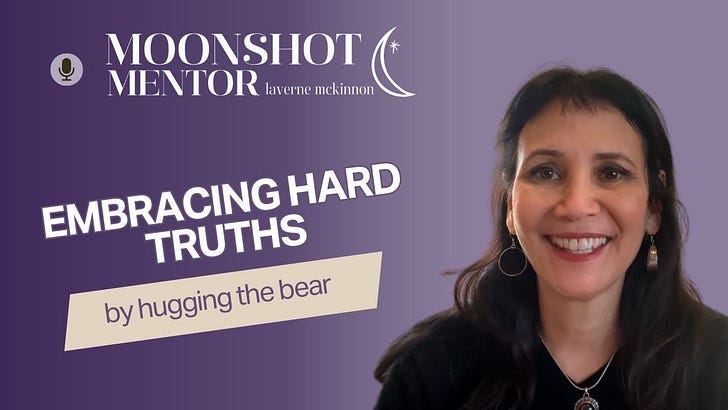There are a lot of great essays, podcasts and articles about making a career pivot, but most of them focus on pivoting as a result of being bored, burnt out or lacking opportunities for growth. But what if you’re contemplating a pivot for completely different reasons? What if you’re in an industry, like entertainment, that is experiencing a massive contraction and you’ve been laid off with very few job opportunities available?

So many of my clients are wondering whether they should ride out an industry downturn, hoping that things change, or if they should pack up and pivot before they’ve burned through their savings.
There are two ways to look at this critical decision: pragmatically and spiritually. Leaning too heavily on pragmatics may rob you of a sense of inner peace. Conversely, if you focus only on the spiritual aspects of critical decision making, you may find yourself in a tough financial spot.
Let’s take a look at both of these decision making models and how to combine them when considering whether to pivot out of a stalled industry.
The Pragmatics
Approaching a big decision in a sensible, thoughtful, rational, eyes wide open manner can help you mitigate risks. When contemplating a career pivot, risks can include exiting too early (before new opportunities or payoffs can be made) or exiting too late (depleting savings, not developing new skill sets, and losing out on opportunities.)
Here are three questions to ask yourself to help you face the practical reality of an industry downturn and inform your decision:
What data exists that suggests how long the downturn will last or when a recovery will happen?
What is your financial runway? How long can you sustain without having an income?
How willing are you to take a potentially ego-bruising job in order to give yourself more time to stay in your chosen field?
While these questions might be painful to answer, it’s important to remove any blinders to the truth. Burying your head will not help you survive or thrive.

It’s equally important not to take industry trends personally. Comparing yourself to others and ruminating about why you were laid off or downsized vs. someone else is not helpful. And you’ll probably never truly know the answers to those types of questions.
What is helpful is naming your talents, skills, strengths and wins. Don’t inflate them and don’t minimize them. They will serve as your lifeboat to either hang on in your current industry or move to another one.
If you’re resonating with what you’re reading, please consider becoming a paid subscriber. What’s that mean?
You’ll receive weekly blogs with tools and resources to help you reconnect with your resilience after experiencing a professional loss or failure so you come back even stronger in your career.
These newsletters are available to read, listen or watch — I’m a big believer in accessibility for all. You can also listen on Apple Podcasts or Spotify. You can also watch on YouTube.
Be in conversation with me and a beautiful, supportive community through comments, threads and chats.
Access to the full archive of posts.
Early bird 20% premium discount for in-person workshops and retreats.
Listen to this episode with a 7-day free trial
Subscribe to Moonshot Mentor with Laverne McKinnon to listen to this post and get 7 days of free access to the full post archives.












